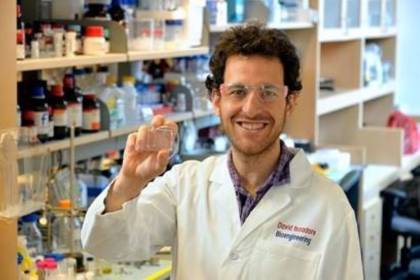Chemical and Biomolecular Engineering Seminar Series (Virtual): David Issadore

Description
David Issadore, an associate professor of bioengineering and electrical and systems engineering at the University of Pennsylvania, will give a talk titled "Diagnosing Disease on a Microchip: Finding Nanoscale Needles in a Nanoscale Haystack" as part of the Chemical and Biomolecular Engineering Seminar Series.
The Zoom link is available on the department event webpage (Zoom Meeting ID: 999 7571 3314; Passcode: 442921).
Abstract:
The transformative growth in microelectronics in the latter half of the 20th century was fueled fundamentally by the ability to miniaturize complex circuits onto chips. The impact of this has been profound– computing is pervasive and portable and communication is instant and global. My research aims to harness this same engineering approach to solve high impact problems in medical diagnostics. To accomplish this goal my lab develops hybrid microchips, where microfluidics are built directly on top of semiconductor chips. In this talk I will focus on recent work at Penn on 'digital asays.' Digital assays — in which ultra-sensitive molecular measurements are made by performing millions of parallel experiments in picoliter droplets — have generated enormous enthusiasm due to their single molecule resolution. These assays have incredible untapped potential for disease diagnostics but are currently confined to laboratory settings due to the instrumentation necessary to generate, control, and measure tens of millions of droplets. To overcome this challenge, we are developing a hybrid microelectronic/microfluidic chip to 'unlock' droplet-based assays for mobile use. Our microDroplet Fluorescence Detector (µDFD) takes inspiration from cellular networks, in which phones are identified by their carrier frequency and not their particular location. In collaboration with physicians at The Abramson Cancer Center, we are demonstrating the power of this approach by developing a multiplexed exosome-based diagnostic for the early detection of pancreatic cancer.
Who can attend?
- General public
- Faculty
- Staff
- Students







